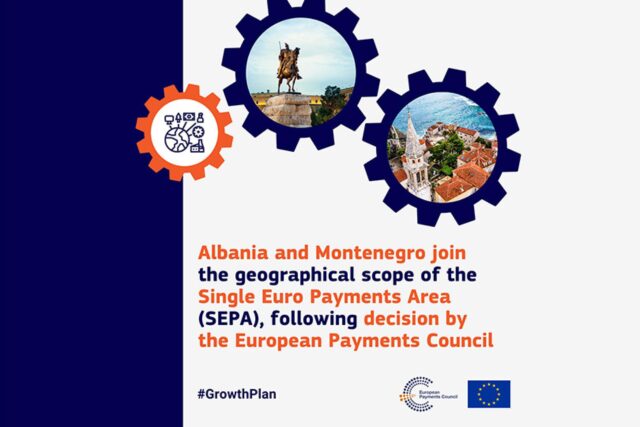Today, Montenegro and Albania advanced on their European integration path by becoming the first-ever enlargement countries to join the geographical scope of the Single Euro Payments Area (SEPA) following the green light by the European Payments Council (EPC). This is a practical example of the impact of the Growth Plan, an EU initiative to accelerate the socio-economic integration of the Western Balkans into the EU, including through progressive access to certain areas of the EU single market based on alignment with the EU acquis Communautaire.
As a result of the European Payments Council decision, the payment service providers of these two countries will have the possibility to adhere to the various SEPA schemes, which is part of a separate process managed by the EPC.
This step paves the way to facilitate financial transfers in euro and reduce the cost of these transactions between the two countries and other SEPA members. The European Commission, through a project funded under the IPA instrument and implemented by the World Bank, will continue to support the preparation of Montenegro and Albania’s payments service providers, as well as the other Western Balkan countries aiming to join the geographical scope of SEPA in the near future.
Background
The European Payments Council (EPC) is an independent, international not-for-profit association formed of 79 members who are payment service providers (PSPs) or associations of PSPs. The EPC was created in 2002 by the European banking industry to develop European instruments for electronic euro payments. Today, close to 4000 banks and other payment service providers participate in SEPA schemes.
Since then, in close dialogue with the stakeholder community, the EPC has developed, among other things, “schemes”, such as the SEPA Credit Transfer, the SEPA Instant Credit Transfer, the SEPA Direct Debit (SDD) Core and the SDD Business-to-Business payment schemes. These schemes, which facilitate over 50 billion transactions in 36 countries each year, are regularly updated and enhanced by the EPC to help realize easy cross-border euro payments.
(Directorate-General for Neighbourhood and Enlargement Negotiations)
